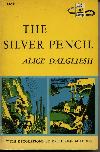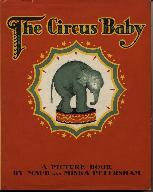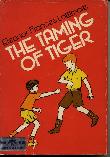- San Jose man says PlayStation online game network is public forum and sues Sony pro se for kicking him off it [Popehat] More: Ambrogi, Legal Blog Watch.
- “Teacher lets kids climb hill, cops come calling” [Santa Barbara, Calif.; Free Range Kids]
- Tip for journalists covering trials: stalk the rest rooms [Genova]
- Lake Erie villages turn off street lights in summer to avoid attracting mayflies, town now sued over driver-jogger collision [Columbus Dispatch]
- Some lawyers anticipate “astronomical” municipal liability from West Portal train collision in San Francisco [SF Weekly]
- Radical notion: before filing lawsuit charging consumer fraud, maybe plaintiff should notify merchant and ask to have problem fixed [New Jersey Lawsuit Reform Watch]
- No jurisdiction: Eleventh Circuit overturns contempt finding against Scruggs in Rigsby case [Freeland]
- Successful trial lawyer campaign against arbitration is throwing credit card business into turmoil [ABA Journal, Wood @ Point of Law, Ambrogi/Legal Blog Watch (conflict of interests at one large arbitration supplier)]
“Lawsuit Claims Indiana Law Examiners Violate the ADA”
“The American Civil Liberties Union of Indiana has launched a class action against that state’s board of law examiners, asserting that inquiries into the mental health of those seeking a law license violate federal disabilities law.” [NLJ]
Suit demanding warnings on hot dogs
The Newark Star-Ledger covers a publicity stunt by the animal-rights group that calls itself Physicians Committee for Responsible Medicine. Patrick at Popehat engages in a bit of naming and shaming. Others to have written on the group in question include Newsweek in 2004 (“Less than 5 percent of PCRM’s members are physicians”), the American Council on Science and Health, and the food-industry-defense Center for Consumer Freedom.
P.S. L.A. Times gets the best line, from Susan Thatcher of Irvine: “Vegans complaining about hot dogs is like the Amish complaining about gas prices.”
Now at Forbes.com: “Inside the Health Care Bill”
Forbes is just up with a new, improved version of my piece on the amazing trial lawyer bonanza that someone quietly tucked into last week’s draft of the health care bill. An earlier version of the piece ran at Overlawyered on Friday. The Forbes version takes note of the names of the House members who were pushing for and against the idea on the Ways & Means panel. Michelle Malkin gives it a recommendation here.
P.S. Some kind words, as well as a link, from Ashby Jones at the WSJ Law Blog (calling us “the granddaddy of legal blogs”). Plus: Don Surber, Charleston (W.V.) Daily Mail, Bainbridge, Wood/ShopFloor, Riehl World View, Bader/CEI “Open Market”.
“If I become the victim of a barbaric crime someday…”
“…please don’t name a statute for me. Send flowers instead.” Gail Heriot on the federal hate-crimes bill [Philadelphia Inquirer]
CPSIA and books: “A bad law threatens our past”
 Elizabeth Mullaney Nicol has an excellent article in The New Atlantis on the Consumer Product Safety Improvement Act and its appalling consequences for old children’s books and the cultural inheritance they represent. (If you’re new to this topic, we’ve covered it extensively here and here.) Among the questions she addresses:
Elizabeth Mullaney Nicol has an excellent article in The New Atlantis on the Consumer Product Safety Improvement Act and its appalling consequences for old children’s books and the cultural inheritance they represent. (If you’re new to this topic, we’ve covered it extensively here and here.) Among the questions she addresses:
Isn’t there a wealth of worthwhile children’s literature published since 1985 for kids to read?
[Older books,] as a group, have certain desirable characteristics. Children’s books of yore tend to use more sophisticated, literary language than their more recent counterparts. The quality of their paper, bindings, and illustrations are often superior. Vintage children’s books assume and encourage the readers’ fascination with adventure, their eagerness to learn about the world, their respect for great men and women.
Won’t the really good older books survive in post-1985 reprint editions that can be sold without fear of liability? (Yes, one really does hear this argument.)

Some books from the 1950s and 60s are back in print, but with updated illustrations so the characters appear to be from our time; if that’s what it takes to lure readers who are wary of anyone who doesn’t look like them to pick up the books, it’s probably fine, but there is also value in presenting books with a style of illustration and characters with a style of dress from a different time, and that’s what we get with old copies. Some books, such as the Hardy Boys and Nancy Drew series, are thoroughly “updated” for today’s readers—simplified, abbreviated, substituting familiar words for those no longer commonly used—so if a child is going to read the originals he needs to read old copies….
Some old books, it is true, express ideas and attitudes of which we would disapprove, prejudices and errors that make modern readers wince. But learning about such sentiments firsthand is at the heart of what it means to learn our history. Moreover, while correcting some of these past problems, our present age has its own objectionable attitudes.
Won’t older children’s books still be available when intended for adult use, say as collectibles or for research?
But the availability of these books to children is the very purpose and value of preserving them. We want them in children’s hands, being read, not only preserved on the dusty back shelves of research libraries. Quantities are important — quantities of titles, and quantities of each title, so they are readily available for loan from public libraries and for purchase through used booksellers. Families have been able to build home libraries through priced-for-reading book sales and thrift stores. … We are suddenly facing the prospect that many of these books will be destroyed, making those that remain all the more rare and inaccessible.
Some used booksellers, trying valiantly to continue selling books for children, are re-labeling their children’s books as collectors’ editions. But this obscures the books from searches by those looking for ordinary children’s books, it clutters the market for real collectibles, it makes the bookseller look ignorant of his trade, and it is prohibited under CPSIA, which stipulates that a book “commonly recognized” as being meant for children’s use will be regulated as such.
The article’s strength, I should note by way of quibble, is not as legal advice: it somewhat overstates the stringency of the law, which does not ban the sale of all untested pre-1985 kids’ books as such, instead exposing booksellers to punishment when they guess wrong about whether a given volume would meet current standards (hence the CPSC’s guidance advising retailers to discard them all). And the call for “sequestering” library copies has thus far come from only one member of the three-member CPSC, not as yet the full commission. As a summation of what will be lost to children and the nation if Congress does not change this law, however, the article is one of the best yet. Read it here.
Relatedly, Ken at Popehat is still trying to grasp the news that according to our federal government:
Children’s books have limited useful life (approx 20 years)
And since Rep. Henry Waxman, closely identified with CPSIA and its defense, has a new book out, Carter Wood at ShopFloor wonders whether this topic is going to come up at any of his bookstore appearances.
P.S. Fenris Lorsrai at LiveJournal reprinted the Nicol article and in so doing prompted some interesting reader comments.
GRAPHICS courtesy VintageChildrensBooks.com.
Teacher who allegedly branded cross onto student’s arm…
…now suing the Mount Vernon, Ohio school district, claiming that he’s the target of religious discrimination. [Popehat, Mount Vernon News with complaint in PDF; coverage of the cross incident last year at Courthouse News; commentary critical of teacher at Panda’s Thumb, supportive at WorldMag]
“Proceed at your peril” of “immense monetary damages”
And while you’re at it, don’t you dare post this nastygram either [Don Bauder, San Diego Reader and Jon Katz, KatzJustice via Greenfield; earlier on Hollywood lawyer Martin Singer of Lavely & Singer] More: Moshirnia, Citizen Media Law.
Universal restaurant calorie labeling?
Way to destroy one-of-a-kind eateries [Conor Friedersdorf at Daily Dish] Related: ABA Journal, Nick Gillespie/Reason “Hit and Run”.
July 21 roundup
- “Plaintiffs’ Attorneys to Get $800,000 in Preliminary Settlement, Class Members Receive Zero” [Calif. Civil Justice covering Bluetooth settlement in which Ted was objector; earlier here and here]
- “Lawyer Jailed for Contempt Is Freed After 14 Years” [Lowering the Bar, earlier]
- Money makes the signals go ’round: another probe of red-light cameras yields few surprises [Chicago Tribune, Chicago Bungalow, Bainbridge on Washington, D.C.]
- Previously little-known company surfaces in E.D. Tex. to claim Apple, many other companies violate its patent for touchpads [AppleInsider via @JohnLobert]
- Child endangerment saga of mom who left kids at Montana mall is now a national story [ABC News; earlier post with many comments; Free Range Kids and more]
- Meet Obama Administration “special adviser on ‘green’ jobs” Van Jones [“Dunphy”, McCarthy at NRO “Corner”]
- Irrationality of furloughs at University of Wisconsin should provide yet another ground to question New Deal-era Fair Labor Standards Act [Coyote]
- Australia’s internet blacklist is so secret you can’t even find out what sites are on it [Popehat – language] Oz to block online video games unsuitable for those under 15 [BoingBoing]

